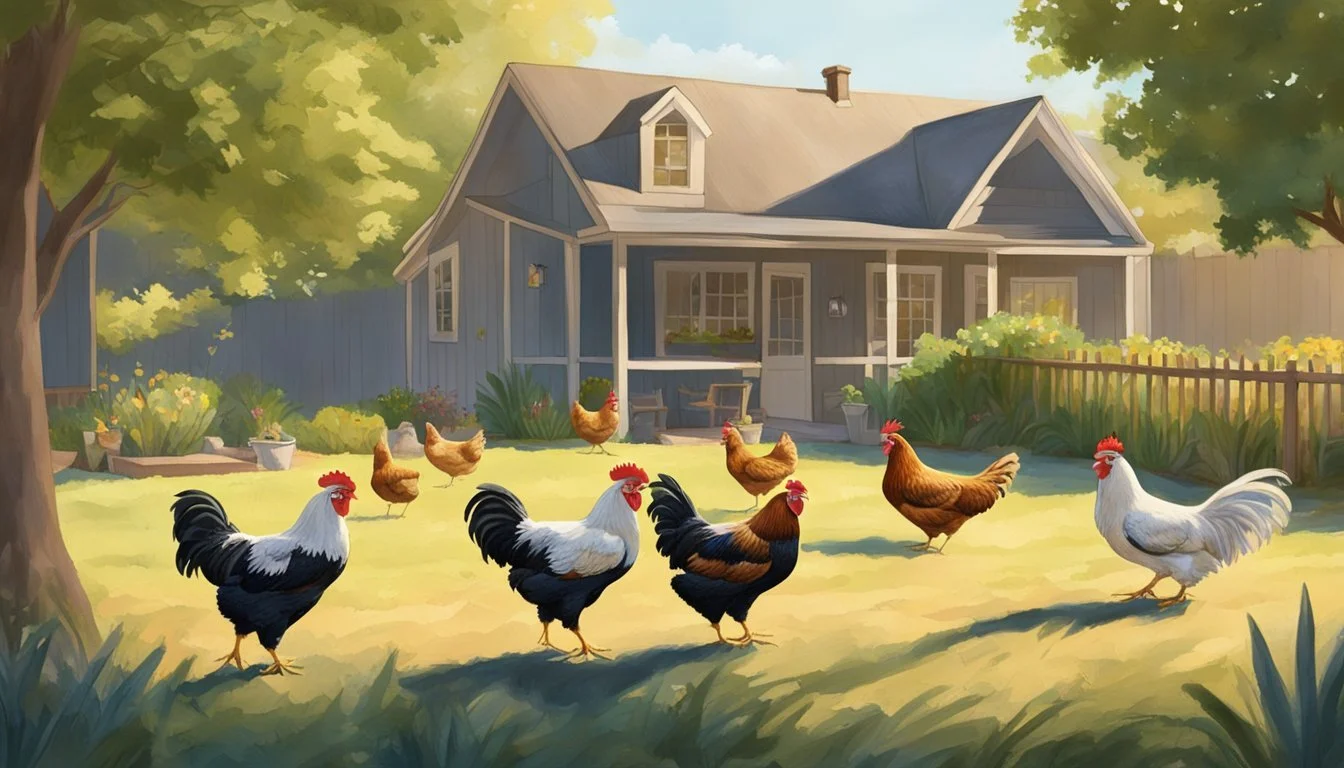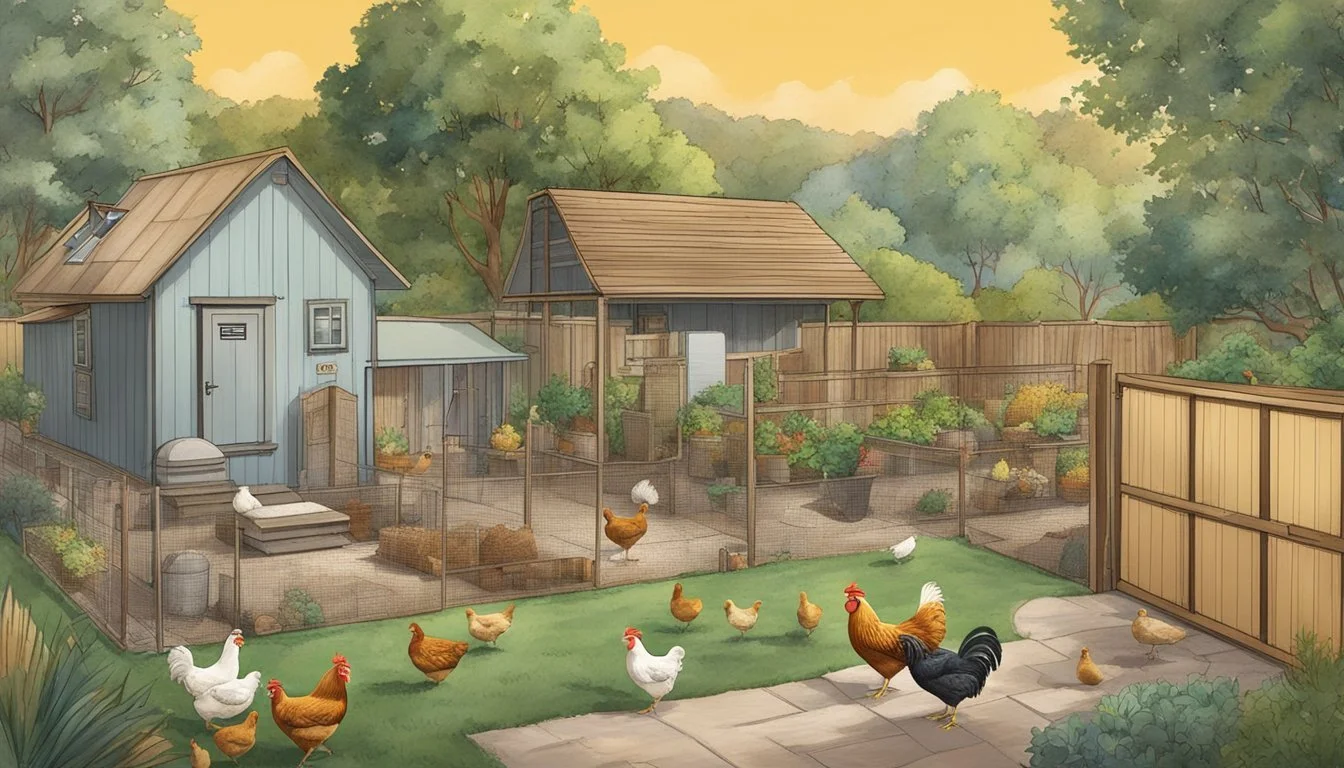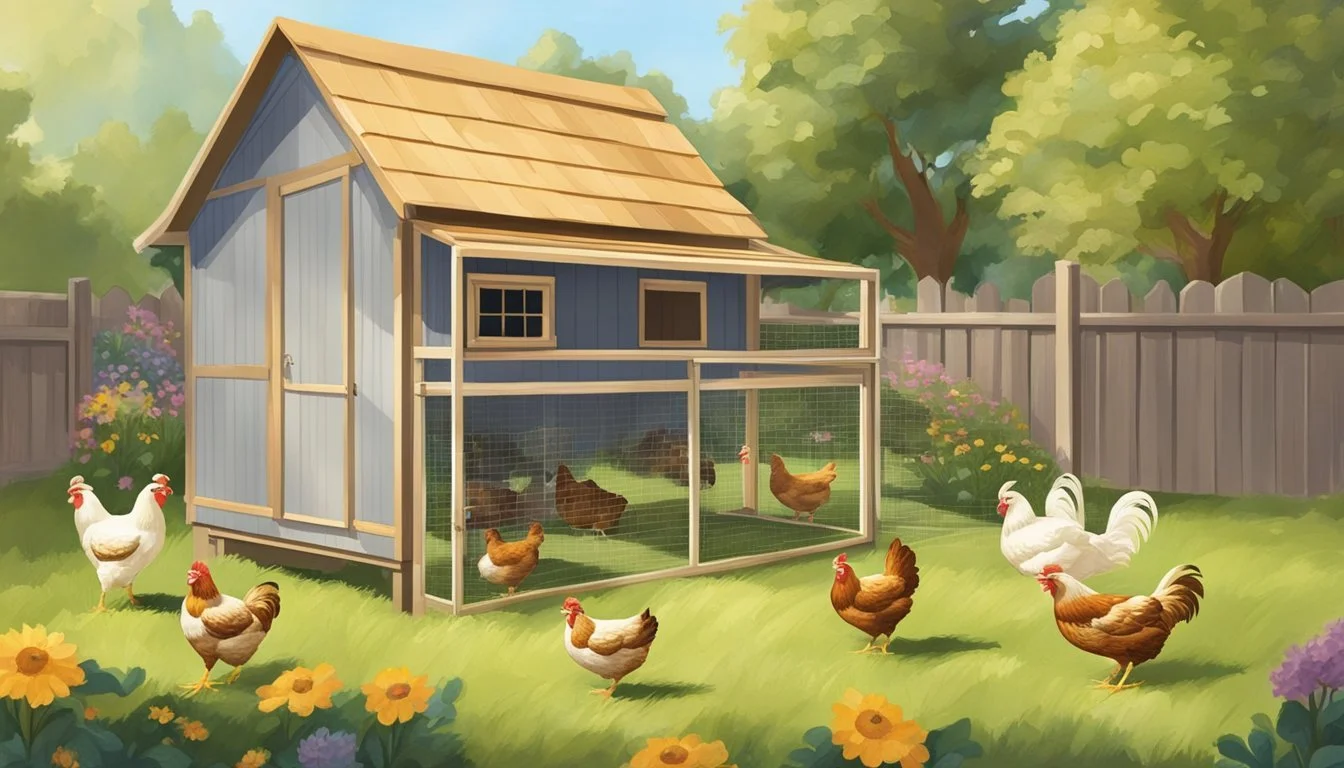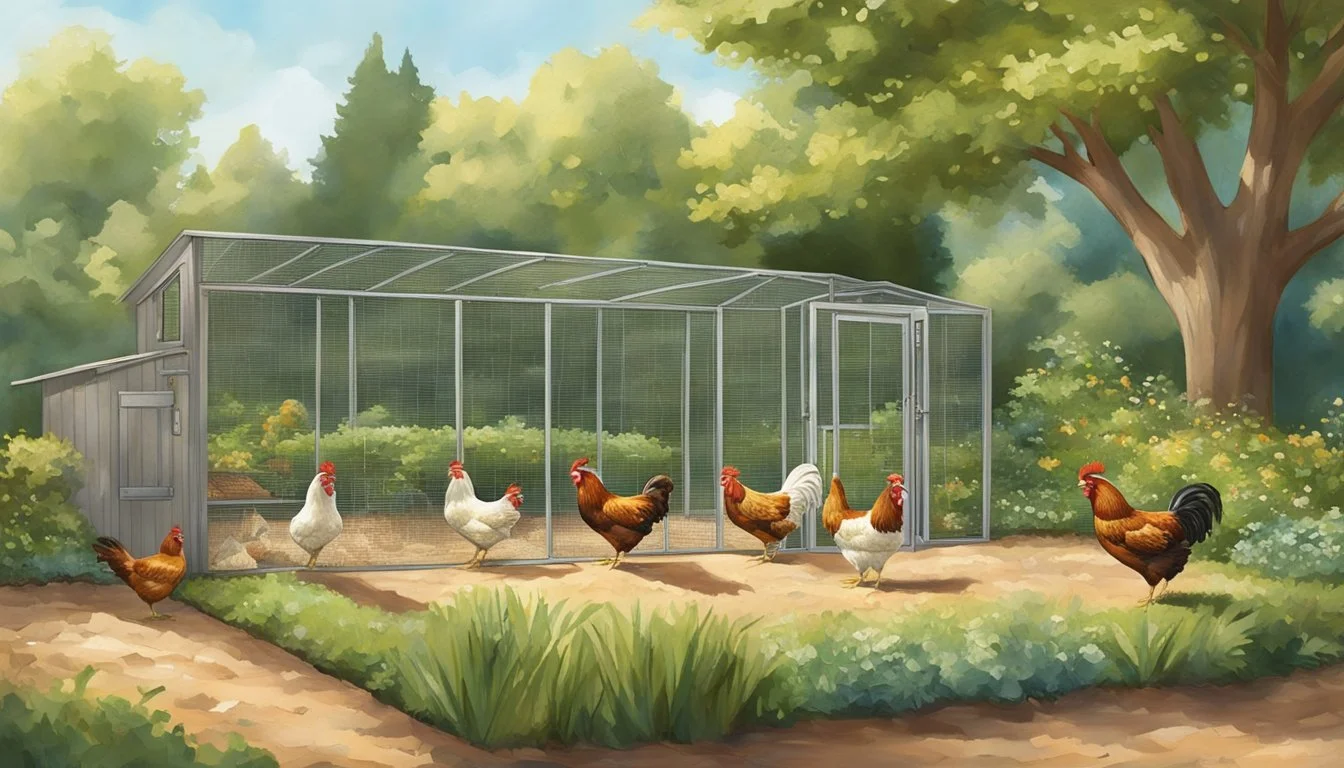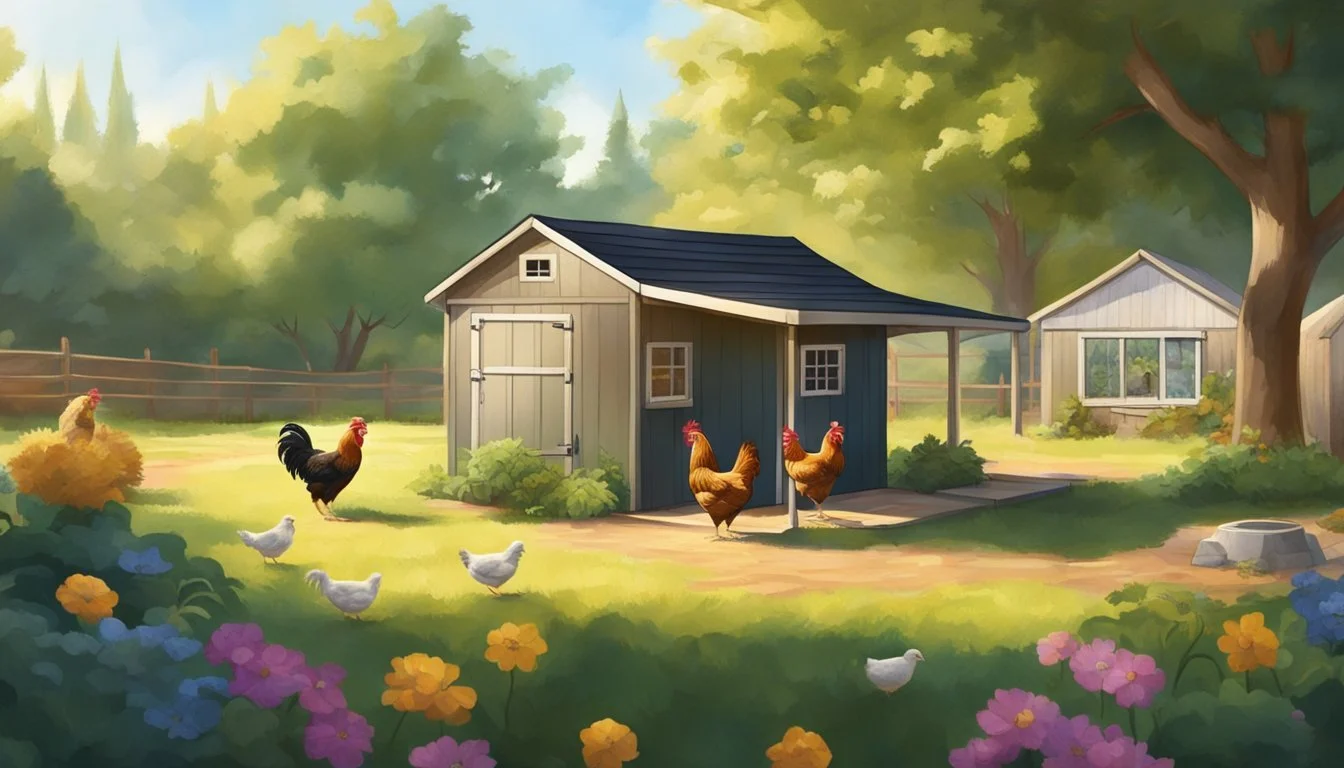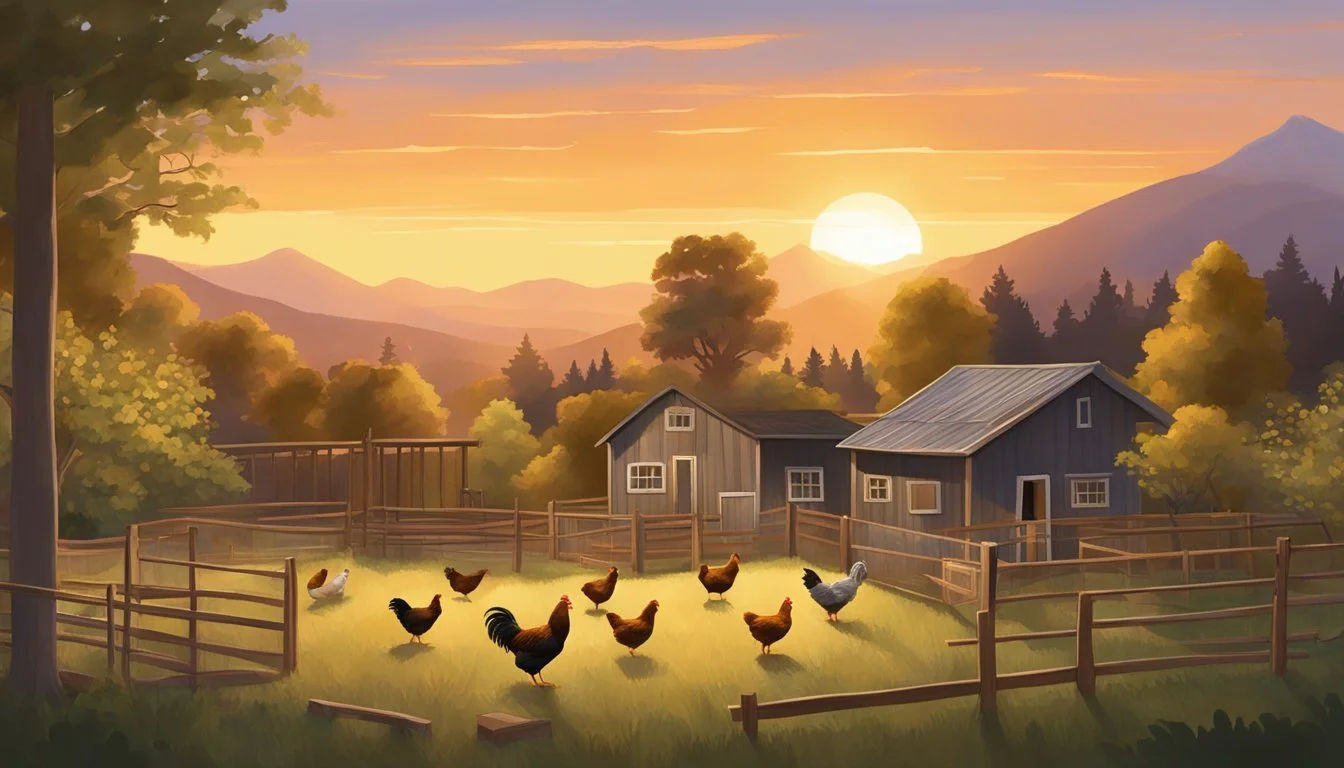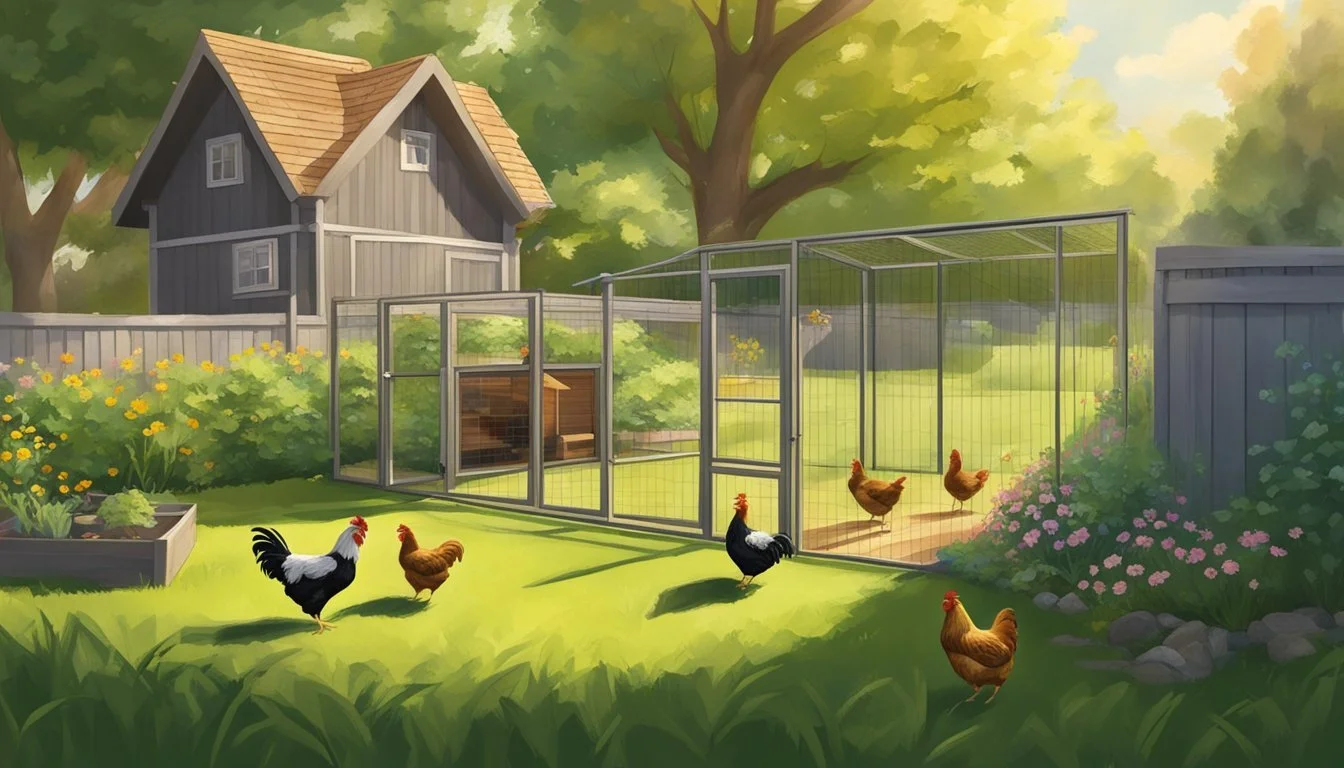Keeping Backyard Chickens in Chico, CA
Essential Guidelines for Urban Poultry Farming
Raising backyard chickens in Chico, CA, has become a popular endeavor for residents looking to embrace a more sustainable lifestyle and enjoy fresh eggs. The city has specific ordinances in place to regulate the keeping of chickens to ensure harmony within the community. It is required that any chicken coops or enclosures be kept at a minimum distance of 20 feet from structures occupied by people, a measure intended to maintain a comfortable living environment for all.
The climate in Chico can present challenges to raising chickens, with temperatures often reaching above 100 degrees Fahrenheit during the summer months. This necessitates proper planning and accommodations to ensure the wellbeing of the birds through adequate shade, ventilation, and access to water. These conditions highlight the importance of constructing suitable enclosures that not only adhere to city regulations but also provide a safe and comfortable habitat for the chickens.
Regulatory compliance, coupled with informed and considerate husbandry, allows residents to successfully keep and care for chickens in their backyards. Prospective and current chicken owners are encouraged to be well-informed about local laws, particularly those pertaining to the number of chickens allowed and the prohibition of roosters in some cases, to ensure their chicken-keeping practices are both legal and neighborly. Thus, Chico residents can enjoy the benefits of fresh eggs and the pleasures of poultry keeping, while being responsible community members.
Understanding Local Laws and Regulations
When considering keeping backyard chickens in Chico, CA, it's crucial to be apprised of the zoning requirements, the permitting process, and the rules set forth by homeowner associations and the local municipality.
Zoning and Residential Requirements
In Chico, CA, local ordinances stipulate that chickens cannot be kept within 20 feet of any structure occupied by people. This regulation also applies to the lot lines, ensuring that chickens are adequately spaced from neighboring homes. As part of the municipal code, these requirements are enforced to maintain sanitary conditions and minimize potential nuisance to residents.
Permitting Process and Legal Considerations
One seeking to raise backyard chickens should contact the City of Chico Code Enforcement to understand if a permit is necessary and the specific legal stipulations attached to poultry keeping. This entity, located at 411 Main Street, Chico, CA, provides guidance on the local laws and regulations within the jurisdiction of Chico. Adherence to these regulations is essential to legally raise chickens within city limits.
Homeowner Association and Municipality Rules
Prospective chicken keepers within the jurisdiction of a Homeowner's Association (HOA) must also consult their HOA's rules. These can sometimes be more restrictive than the local laws set by the municipality. The local government of Chico may provide general guidelines, but the HOA can implement additional rules specific to a neighborhood. Fulfilling both local ordinances and HOA rules is necessary for compliance.
Setting Up Your Chicken Coop
Creating a chicken coop in Chico, CA requires careful planning to ensure the health and safety of the chickens. This entails choosing the right location, designing a secure coop with essential features, and implementing adequate ventilation and nesting boxes.
Choosing the Right Location
The placement of a chicken coop should comply with city regulations, which in Chico demands that coops be positioned at a minimum of 20 feet from any people-occupied structure. When selecting a location, one should consider protection from elements and predators. A spot with partial shade is ideal to safeguard chickens from intense sun and to manage temperatures within the coop.
Coop Design and Security Features
A robust chicken coop design addresses security and space allowing at least four square feet of space per chicken inside and ample space in outdoor runs. The coop must be predator-proof, with features such as secure latches that raccoons and other wildlife cannot manipulate.
Here is a list of considerations for the coop's structural security elements:
Doors: Fit with sliding bolts or locks that cannot be opened by predators.
Windows: Ventilated yet secured windows to prevent intrusion.
Materials: Use of sturdy materials that resist gnawing and clawing.
Nesting Boxes and Ventilation
Each coop should have enough nesting boxes to accommodate the laying needs of the hens, typically one box for every three to four hens. Nesting boxes should be filled with comfortable and clean bedding material. Proper ventilation is critical to avoiding moisture build-up and maintaining a healthy environment. Incorporating vents or windows high in the walls facilitates the release of warm, humid air.
Caring for Your Chickens
When keeping backyard chickens in Chico, CA, owners must prioritize nutrition, disease prevention, and cleanliness. These are crucial aspects that directly impact the health and productivity of the flock.
Feeding and Nutrition
Proper nutrition is essential for chickens to maintain health and produce quality eggs. A regular diet should consist of:
Layer pellets: Formulated for egg-laying hens
Seeds and grains: Adds variety and additional nutrients
Grit: Helps digestion by grinding food in the gizzard
Calcium sources: Like oyster shells for eggshell quality
Clean water: Accessible at all times to prevent dehydration
Health and Disease Prevention
To prevent disease and promote overall health in chickens:
Vaccinations: Follow a vaccination schedule as recommended
Parasite control: Regularly treat for lice, mites, and internal worms
Health checks: Perform regular inspections for signs of illness
Biosecurity: Limit exposure to wild birds and practice quarantine for new additions
Proper handwashing after handling chickens or equipment is crucial to prevent disease spread.
Cleanliness and Waste Management
Maintaining cleanliness is vital for the flock's health:
Coop Cleaning: Perform weekly cleaning to remove droppings and refresh bedding
Nesting Boxes: Keep them clean to encourage laying and prevent egg contamination
Waste Management: Compost chicken waste or dispose of it properly to prevent attracting pests
Routine cleaning reduces disease risk and keeps the living environment pleasant for both chickens and humans.
Daily and Seasonal Chicken Care
In Chico, CA, backyard chicken keepers must navigate both daily tasks and seasonal considerations to ensure the health and productivity of their flock.
Egg Production and Gathering
Egg production in backyard chickens can be influenced by factors such as daylight and nutrition. Hens ideally require about 14 hours of daylight to maintain consistent egg production, which may necessitate supplemental lighting in winter months. Fresh eggs should be collected daily to maintain cleanliness and prevent breakage. It is important to provide a balanced diet rich in calcium and protein to support the laying process.
Daily Task:
Collect eggs in the morning and evening.
Check nesting boxes for cleanliness.
Chick Handling and Development
Proper care of chicks from hatching to adulthood is critical. Chicks require a brooder with a controlled heat source for the first few weeks of life, with the temperature gradually decreasing each week. Growth milestones include transitioning from starter feed to grower feed, and eventually to layer feed as pullets near egg-laying age. Regular handling and observation will help monitor their development and integrate them into the flock safely.
Chick Care Timeline:
0-8 weeks: 18-20% starter feed; warmth in brooder.
8-14 weeks: Transition to 16-18% starter/grower feed.
15-18 weeks: Prepare for the introduction of layer feed.
Seasonal Upkeep and Challenges
Different seasons present unique challenges for chicken keepers in Chico, CA. Winter requires measures to prevent frostbite and ensure access to unfrozen water, while the summer heat necessitates shade and adequate ventilation. The prevention of pests and predators is a year-round task, with heightened vigilance required during certain seasons due to increased wildlife activity.
Seasonal Considerations:
Winter: Insulate the coop, use heaters for water.
Summer: Provide shade and cool water, increase coop ventilation.
Understanding Chicken Behavior
When discussing the behavior of chickens, it's essential to recognize their innate social structure and the dynamics of their interaction with other backyard animals. These behaviors are rooted in their biology and affect how they mingle within their flocks and with other species.
Social Structure and Pecking Order
Chickens establish a hierarchy known as the pecking order, which dictates their social structure within a flock. This hierarchy determines access to food, nesting sites, and mating, with dominant chickens at the top and submissive ones at the bottom. Recognizing the pecking order is crucial as it affects feeding, roosting, and overall harmony among chickens. Disturbances in the pecking order can lead to stress or aggressive behaviors as chickens seek to reassert their position.
Interaction with Other Backyard Animals
While chickens can coexist with other backyard animals, interactions should be monitored closely. Factors such as space, resource availability, and the temperaments of individual animals can influence the dynamics between chickens and other pets. The presence of predators or aggressive animals can induce stress in chickens, affecting their behavior and well-being. Protective measures such as secure enclosures are recommended to prevent harm and to provide a safe environment for all animals.
Legal Issues Specific to California
In California, individuals interested in keeping backyard chickens must navigate a variety of state and local regulations. These requirements can vary significantly, from the number of chickens allowed to the necessary distance from neighboring structures.
State-Level Poultry Regulations
California state law sets general guidelines for the keeping of chickens and other poultry. It often emphasizes the humane treatment and proper management of waste to prevent health and environmental concerns. However, the state allows cities to establish more specific local ordinances, which means the actual terms for keeping chickens can vary greatly from one municipality to another.
Comparison of Local Ordinances in Major Cities
San Francisco: Within city limits, residents are allowed to keep a small flock without a permit, provided they are for personal use and not for commercial purposes.
Los Angeles: Residents can keep chickens, but they must be confined at least 35 feet from any residence, including the chicken owner's home.
Oakland: A permit is not required for fewer than 20 chickens, and coops must be kept at least 20 feet from neighboring residential structures.
Sacramento: The city has its own specific requirements, including limits on the number of chickens based on the size of the property.
San Diego: Similar to other cities, San Diego imposes restrictions on the number of chickens and the proximity to neighboring dwellings.
Bakersfield: This city allows residents to keep chickens, but with strict limitations on the number and also requires certain setbacks from adjacent properties.
It is important for residents to check with their local city or county office to get the most up-to-date and relevant information for their specific region within California.
Advanced Topics in Backyard Poultry
When engaging with more specialized aspects of backyard poultry, keepers in Chico, CA can explore breeding techniques and sustainable waste management. Thorough understanding and responsible practices are critical in these areas for both the health of the flock and environmental impact.
Breeding and Expanding Your Flock
Breeding backyard chickens is a complex initiative that necessitates knowledge of genetics and proper care. For instance, selecting a breed like the Leghorn can be beneficial for those seeking high egg production. Flock size management is also crucial; a larger flock requires more space and resources. Keepers aim to maintain genetic diversity and avoid inbreeding, which can result in health issues.
Considerations for Breeding:
Health Screening: Regular health checks to prevent genetic diseases.
Pairing: Matching roosters with hens based on desirable traits.
Record Keeping: Tracking breeding pairs and offspring.
Composting Chicken Waste and Environmental Care
Chicken waste composting is an eco-friendly practice allowing keepers to repurpose manure into nutrient-rich compost for gardens. It's critical to compost properly to minimize odor and reduce flies. A balanced compost should have a mix of brown materials (dry leaves, straw) and green materials (chicken waste) to ensure proper decomposition.
Steps for Composting Chicken Waste:
Collection: Regularly clean out bedding and collect manure.
Layering: Alternate layers of waste with browns and greens.
Turning: Aerate the compost heap to assist the breakdown process.
Slaughtering should be addressed by those whose practices include meat production. It must be conducted humanely and in accordance with local regulations, which reflect the community's commitment to animal welfare and public health considerations.
Getting Started with Backyard Chickens
When residents of Chico, CA decide to embark on raising backyard chickens, it is imperative that they first understand the local ordinances and requirements to ensure they are in compliance with the law. The city mandates that chickens must be kept at least 20 feet away from any people-occupied structure, which includes not only the owner's home but also neighboring dwellings.
Permitting and Licensing
Before bringing any chickens home, individuals need to contact:
Chico Code Enforcement
Address: 411 Main Street Chico, CA 95928
Mailing: PO Box 3420, Chico, CA 95927
Code Enforcement Supervisor: Scott Armstrong
Phone: 530-879-6330
Email: rschrein@ci.chico.ca.usAnimal Control
Phone: 530-897-4960
They will provide details on whether a permit or license is required for raising chickens within city limits.
Essentials for Raising Chickens
Secure Housing: A coop sufficient to prevent predators from accessing the chickens.
Proper Spacing: Ensure there is adequate room according to city guidelines.
Routine Care: Includes feeding, cleaning, and health monitoring.
Planning for Absences: Prior arrangements for their care during vacations.
By following the proper protocols and preparing for the responsibilities that come with raising chickens, enthusiasts can enjoy a successful backyard flock. Commitment to routine care and compliance with local ordinances are cornerstones of responsible chicken ownership.

